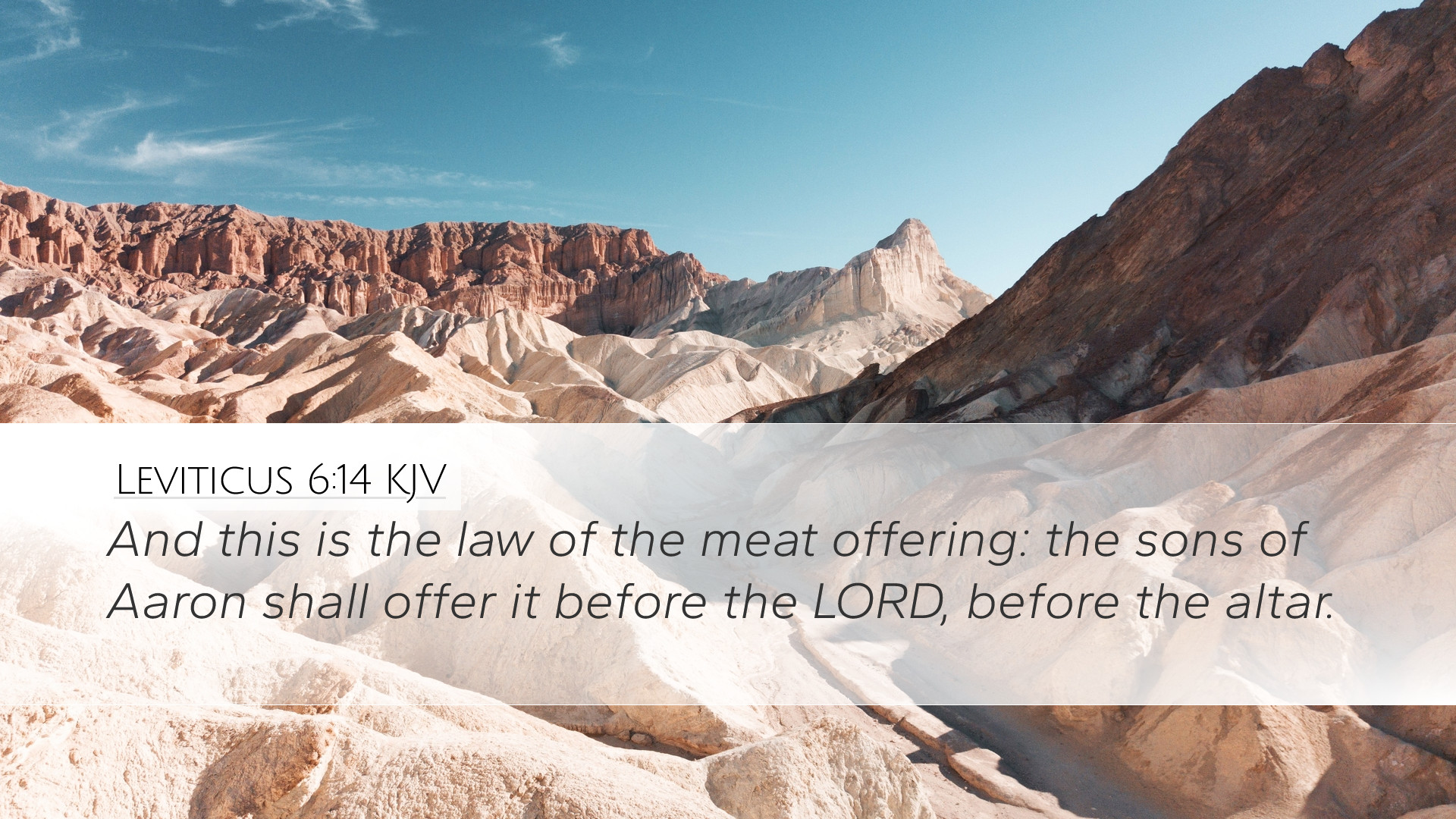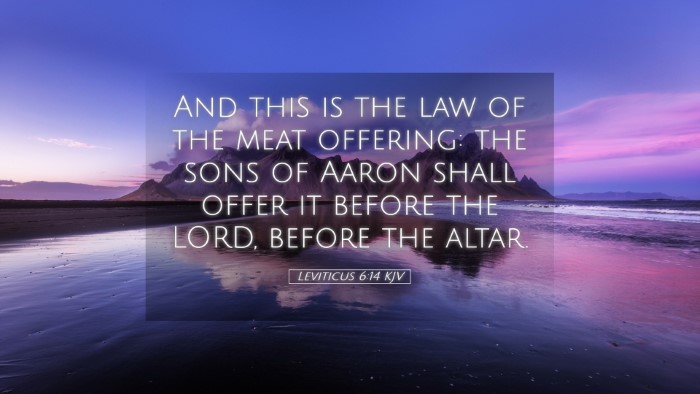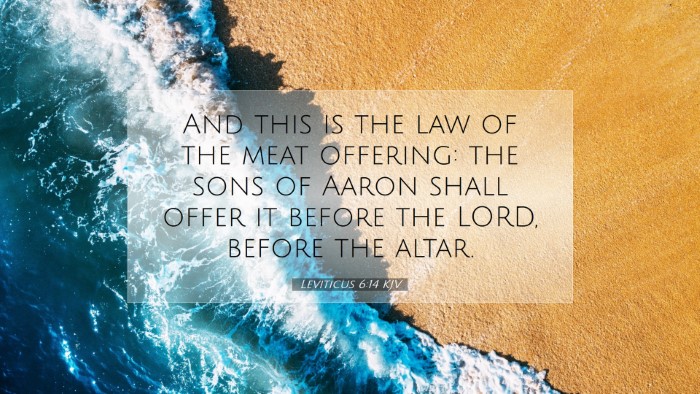Bible Commentary on Leviticus 6:14
Verse Overview: Leviticus 6:14 reads, "And this is the law of the meat offering: the sons of Aaron shall offer it before the LORD, before the altar." This verse initiates the specific regulations regarding the meat offering, signifying the importance of these sacrifices in the worship and service to God.
Significance of the Meat Offering
1. Historical Context: The meat offering, or grain offering, is one of the five primary sacrifices outlined in the Book of Leviticus. It is distinct from the burnt offering, which symbolizes complete surrender to God, while the meat offering is an expression of gratitude and dedication of the fruits of labor to God.
- Matthew Henry: Henry articulates that the meat offering demonstrates both the acknowledgment of God’s provision and the act of feeding the spiritual life of God’s people.
- Albert Barnes: Barnes notes that the meat offering emphasizes the purity and holiness of the offerings made to the Lord, as they were to be free from leaven and honey, symbols of corruption.
- Adam Clarke: Clarke elsewhere elaborates on the significance of flour in this offering, which signifies the sustenance and blessings received from God.
The Role of Aaron's Sons
2. Priestly Responsibility: The verse specifies that the sons of Aaron, the priests, are entrusted with offering the sacrifices. This underscores the importance of priestly duties in mediating between God and His people.
- Matthew Henry: Henry points out that the priests are to administer sacrifices respectfully and reverently, reminding us that our approach to God must always be with due reverence and awe.
- Albert Barnes: Barnes emphasizes that this delegation to the priests represents God's desire for order and accountability in worship, reflecting the need for spiritual leaders to guide their congregations in holiness.
Covenantal Implications
3. The Nature of God and His Covenant: This offering serves as a reminder of the covenant relationship between God and Israel. It signifies mutual commitment, where God promises to bless His people, and in return, the people acknowledge God’s sovereignty through their offerings.
- Adam Clarke: Clarke remarks on how offerings were an acknowledgment of divine sovereignty, and when the people brought their offerings, it was a representation of their recognition of God’s lordship over every aspect of life.
Theological Reflections
4. Symbolism of the Meat Offering: The meat offering can also be seen as a foreshadowing of Christ's ultimate sacrifice. Just as the offering is presented before the Lord, so too was Christ presented as the pure sacrifice for humanity.
- Matthew Henry: Henry draws parallels between the grain offerings and Christ's death, highlighting how both serve as offerings for atonement and express our devotion to God.
Practical Applications for Today
5. Worship and Offerings: For modern believers, this verse invites reflection on personal worship and the offerings we bring to God. While we may not offer grain, the principle remains—what do we dedicate to God in gratitude for His blessings?
- Albert Barnes: Barnes calls believers to consider what we put before God today, urging us to offer Him our best, whether it be time, resources, or service.
- Adam Clarke: Clarke encourages the necessity of sincerity and commitment in our offerings, emphasizing that both our heart and actions are to reflect our relationship with God.
Conclusion: Leviticus 6:14 serves as a profound reminder that our worship should be intentional, sacred, and grounded in our understanding of God’s grace. By examining the significance of the meat offering and the roles of the priests, believers today can glean insights into the nature of God, the importance of offerings, and how these principles apply to our lives as we serve Him.


